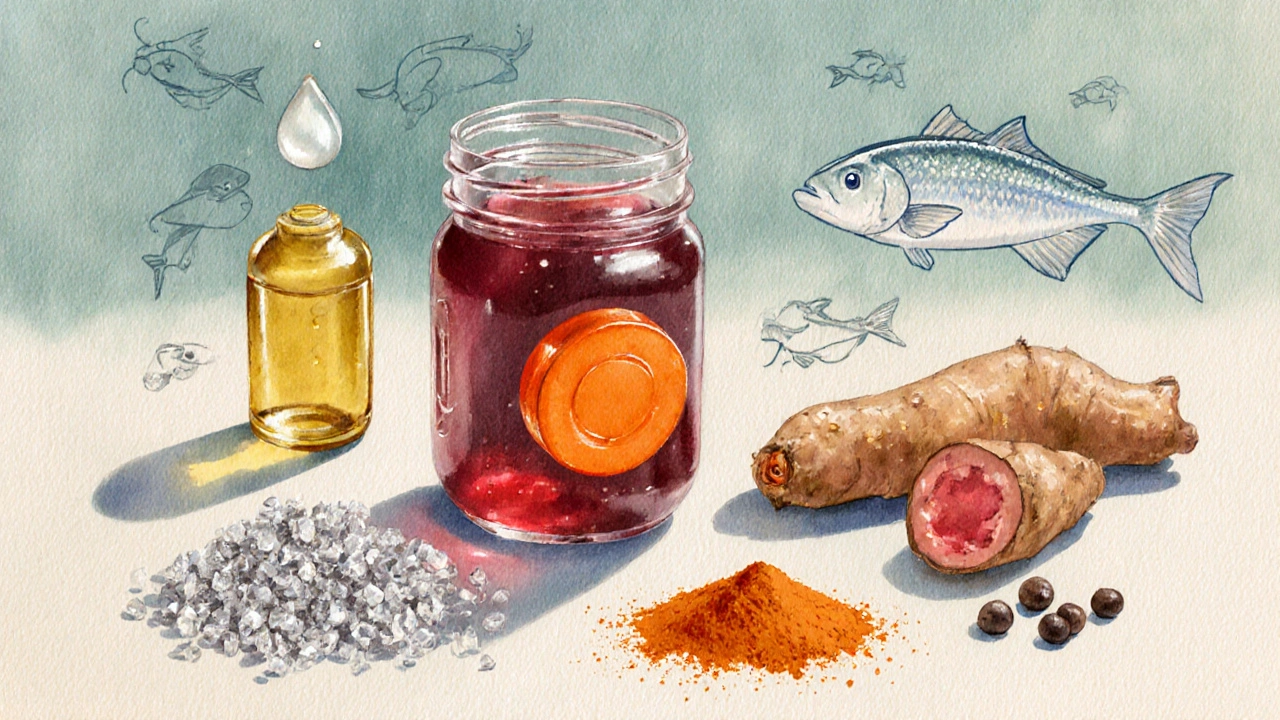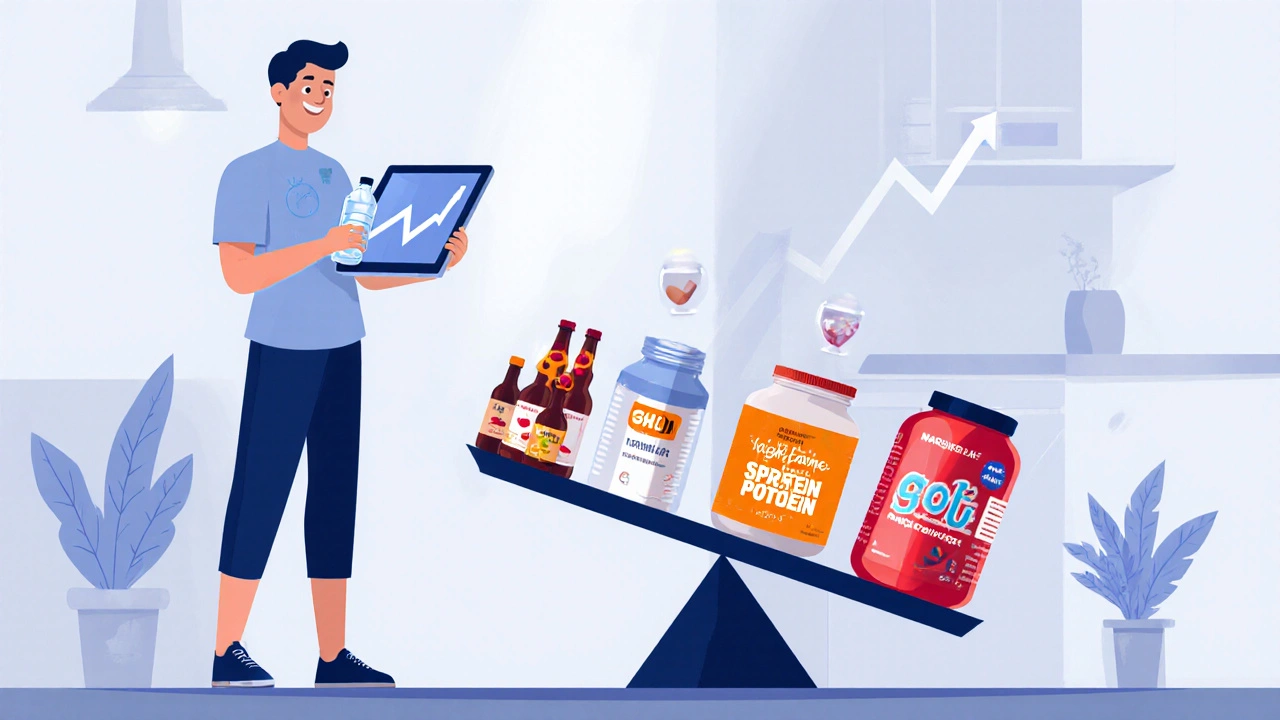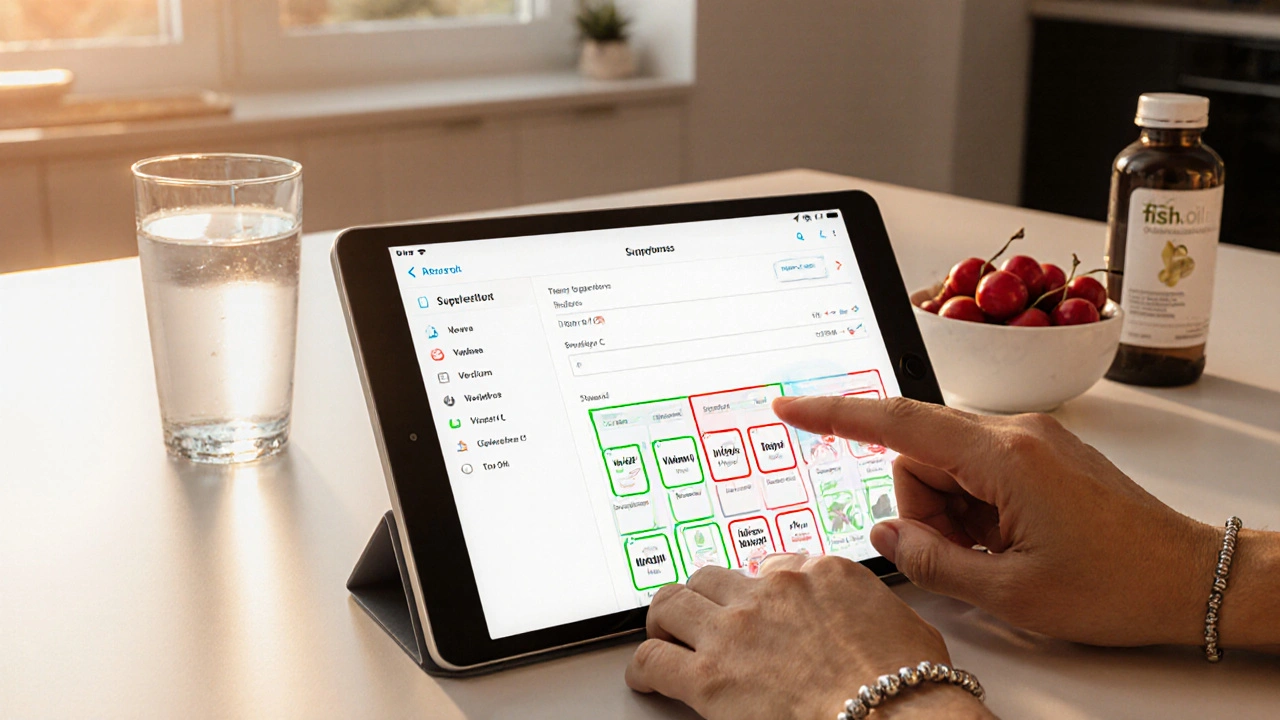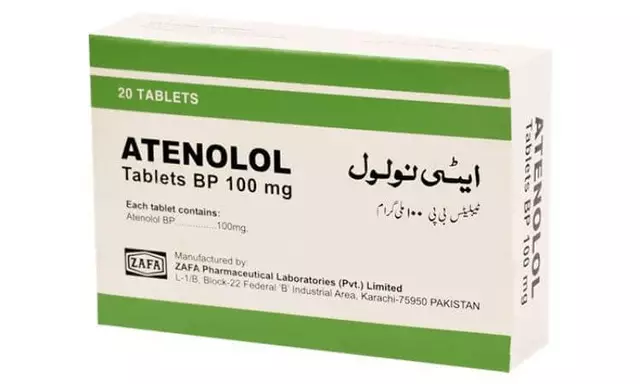Gout Supplement Selector
Select Supplements to Evaluate:
Select supplements and click "Analyze My Choices" to get personalized recommendations.
Living with gout means constantly watching what you eat and drink, but the right supplements can tip the balance toward fewer flare‑ups. This guide breaks down the science behind the most effective gout supplements and points out the ones that might actually make the condition worse.
Key Takeaways
- Vitamin C, cherry extract, omega‑3s, magnesium, and turmeric have solid evidence for lowering uric‑acid levels or reducing inflammation.
- Avoid high‑purine or high‑fructose supplements, excess dairy‑derived powders, and anything that masks pain without addressing uric‑acid buildup.
- Start low, monitor blood uric‑acid, and talk to a healthcare professional before mixing supplements with prescription meds.
Understanding Gout and Uric Acid
Gout is a form of arthritis caused by the buildup of uric acid crystals in joints. When uric‑acid levels rise above about 6.8mg/dL, crystals can form, leading to sudden, painful swelling, typically in the big toe.
The underlying culprit, uric acid, is a waste product from the breakdown of purines-natural compounds found in many foods and the body’s own cells. The kidneys usually filter it out, but genetics, kidney function, and diet can tip the scale.
Managing gout therefore revolves around two goals: lowering serum uric‑acid and calming the inflammatory response when crystals appear.

Supplements That Help
Below are the supplements with the strongest clinical or epidemiological support for gout patients.
- Vitamin C (ascorbic acid) - 500mg twice daily has been shown to reduce uric‑acid by 0.5mg/dL in several trials. It also acts as an antioxidant, protecting joint cells from damage.
- Cherry extract - Concentrated tart‑cherry juice or capsules (30ml or 500mg twice daily) contain anthocyanins that inhibit xanthine oxidase, the enzyme that makes uric‑acid. A 2023 meta‑analysis reported a 35% lower risk of gout attacks when cherry products are used consistently.
- Omega‑3 fatty acids - EPA/DHA from fish oil (1g per day) dampen inflammation by reducing prostaglandin production. While they don’t lower uric‑acid directly, they help control swelling during attacks.
- Magnesium - 300mg nightly can improve renal clearance of uric‑acid, especially in people with low dietary magnesium. Studies in 2022 showed a modest 0.2mg/dL drop in serum levels.
- Turmeric (curcumin) - 500mg of a standardized curcumin extract (95% curcuminoids) taken with black‑pepper oil reduces inflammatory markers like CRP, helping lessen the pain of an acute flare.
Supplements to Avoid
Some popular products can raise uric‑acid or interact poorly with gout medications.
- High‑purine protein powders (e.g., whey isolates with added amino‑acid blends) - Excess purines can spike uric‑acid.
- Fructose‑rich sports drinks - Fructose is metabolized into uric‑acid; regular consumption can raise levels by up to 0.3mg/dL.
- Dairy‑based calcium supplements - While low‑fat dairy is generally good, calcium carbonate powders often contain added sugars that offset benefits.
- Niacin (vitaminB3) in high doses - >100mg can impair renal uric‑acid excretion.
- Herbal diuretics (e.g., dandelion root extracts) - May cause dehydration, concentrating uric‑acid in the blood.

How to Combine Supplements Safely
- Check your current prescription (allopurinol, febuxostat, colchicine). Some supplements, like vitaminC, can boost the effect of allopurinol and may require dose adjustment.
- Start with one supplement at a time. Begin with vitaminC, monitor uric‑acid for two weeks, then add cherry extract if needed.
- Maintain hydration - aim for at least 2L of water daily. Supplements that increase renal clearance work best with good fluid intake.
- Schedule a blood test after 4-6 weeks of any new supplement regimen to see if serum uric‑acid has moved in the right direction.
- If you notice side‑effects (stomach upset, rash, increased gout pain), stop the supplement and consult a pharmacist.
Quick Checklist for Gout‑Friendly Supplement Choices
- ✅ Vitamin C - 500mg twice a day, split with meals.
- ✅ Tart‑cherry concentrate - 30ml daily or 500mg capsule twice daily.
- ✅ Fish oil - 1g EPA/DHA, with food.
- ✅ Magnesium - 300mg at bedtime.
- ✅ Curcumin - 500mg with piperine for absorption.
- ❌ High‑purine protein powders.
- ❌ Sugary sports drinks.
- ❌ Large doses of niacin.
| Supplement | Effect on Uric Acid | Anti‑Inflammatory Benefit | When to Avoid |
|---|---|---|---|
| Vitamin C | ↓ 0.3-0.5mg/dL | Moderate antioxidant | Kidney stones history |
| Cherry extract | ↓ Up to 15% | High anthocyanin anti‑oxidant | Very low blood sugar |
| Omega‑3 (fish oil) | No direct change | Strong anti‑inflammatory | Bleeding disorders |
| Magnesium | ↓ 0.1-0.2mg/dL | Supports renal clearance | Severe kidney disease |
| Turmeric (curcumin) | No direct change | ↓ CRP, pain relief | Gallbladder disease |
| High‑purine protein powder | ↑ 0.2-0.4mg/dL | None | All gout patients |
| Fructose‑rich drinks | ↑ 0.1-0.3mg/dL | None | During flare‑ups |
| Niacin (>100mg) | ↑ 0.2mg/dL | None | Patients on uric‑acid‑lowering meds |
Frequently Asked Questions
Can vitaminC replace gout medication?
No. VitaminC can modestly lower uric‑acid, but it isn’t a substitute for prescription drugs like allopurinol. Use it as a supportive measure alongside medical therapy.
How much cherry juice is enough to see a benefit?
Studies suggest 30ml of tart‑cherry concentrate or an equivalent 500mg cherry‑extract capsule taken twice daily. Consistency over weeks is key; occasional sips won’t move the needle.
Are fish oil capsules safe if I’m on blood thinners?
Fish oil can increase bleeding risk when combined with anticoagulants. Talk to your doctor; a low dose (500mg) may be okay, but higher doses require monitoring.
Should I stop all supplements during an acute gout attack?
Continue the anti‑inflammatory supplements (turmeric, omega‑3) unless they cause stomach upset. Hold up any supplement that could raise uric‑acid (high‑purine powders) until the flare settles.
How often should I test my uric‑acid when trying new supplements?
A baseline test, then repeat after 4-6 weeks of a new supplement, gives a clear picture. If levels stay high, consider adjusting dosage or trying a different supplement.







Mark Evans
5 October 2025I've found that starting with a modest dose of vitamin C, like 500 mg split between meals, often gives a gentle nudge to uric‑acid numbers without any stomach upset. Pair that with a daily splash of tart‑cherry concentrate, and many folks report fewer flare‑ups over a month. Just keep an eye on kidney‑stone risk if you have a history, and stay hydrated. Consistency is key, so set a reminder and track your labs.
Megan C.
6 October 2025The reality is that many of these “miracle” supplements are marketed with shiny promises but lack solid oversight. People with gout should demand evidence, not rely on anecdotal hype that could mask underlying issues. If you’re already on allopurinol, adding high‑dose niacin could sabotage your treatment. It’s a moral responsibility to consult a clinician before any self‑prescribed regimen.
Greg McKinney
6 October 2025I’d rather drink a soda than waste money on cherry juice.
Dawna Rand
7 October 2025Love the practical checklist! 🌟 Starting with vitamin C and cherry extract is a solid foundation, and the emoji style ✅ makes it fun to follow. Just remember to pair them with plenty of water – hydration is the silent hero. Keep sharing those colorful tips, they brighten the thread! 😊
Effie Chen
8 October 2025Research shows that magnesium supplementation can modestly improve renal clearance of uric acid, especially in individuals with low dietary intake. A nightly 300 mg dose has been associated with a small but measurable drop in serum levels.
rohit kulkarni
9 October 2025When one contemplates the intricate dance between purine metabolism and the exogenous influences of nutraceuticals, the mind inevitably drifts toward the philosophical realm of causality; yet, empirical evidence must remain our guiding lantern, illuminating the fog of conjecture. The biochemical pathway of xanthine oxidase, a pivotal enzymatic conduit, is susceptible to inhibition by ascorbic acid, a fact substantiated by multiple randomized trials, each delineating a modest decrement in serum uric‑acid concentration. Moreover, the anthocyanins embedded within tart‑cherry extract engage in a competitive antagonism, attenuating the oxidative cascade that fuels crystal formation, thereby furnishing a protective shield against gouty arthropathy. Omega‑3 fatty acids, notwithstanding their negligible effect on uric acid per se, orchestrate a profound suppression of pro‑inflammatory eicosanoids, translating to palpable relief during acute flares; this anti‑inflammatory virtue is well‑documented in meta‑analyses spanning diverse cohorts. Magnesium, an often‑overlooked cation, augments renal excretion pathways, its supplementation heralding a subtle yet consistent decline in uric‑acid metrics, particularly amongst the hypomagnesemic subset of patients. Curcumin, the bioactive constituent of turmeric, exerts its influence through modulation of nuclear factor‑kB, diminishing cytokine storms that exacerbate joint inflammation, an effect corroborated by double‑blind studies. It is incumbent upon the practitioner to recognize that high‑purine protein powders, replete with nucleic acid precursors, invert these therapeutic gains, precipitating an elevation in serum uric acid that may nullify prior advances. Similarly, fructose‑laden beverages undergo hepatic phosphorylation, culminating in transient hyperuricemia, a mechanistic insight that underscores the necessity of dietary vigilance. Niacin, surpassing the threshold of 100 mg, impedes renal urate clearance, an adverse interaction that can sabotage even the most meticulously crafted supplement regimen. The overarching principle, therefore, is one of judicious selection, progressive titration, and vigilant monitoring; a single supplement introduced in isolation, observed for four weeks with serial uric‑acid assays, can elucidate its true efficacy. Hydration, the oft‑underappreciated cornerstone, amplifies the renal excretory capacity, rendering all adjunctive measures more potent. Ultimately, the symphony of gout management harmonizes pharmacologic agents, lifestyle modifications, and evidence‑based supplements, each instrument playing its part in the quest for eudaimonia, the flourishing of health. Thus, the discerning patient, armed with knowledge and guided by clinical counsel, may navigate the labyrinth of gout with confidence, eschewing the allure of unverified fad while embracing the measurable benefits of scientifically vetted nutraceuticals.
RONEY AHAMED
9 October 2025Just start with a low dose of vitamin C and see how your labs respond. If it looks good, you can add cherry extract later.
emma but call me ulfi
10 October 2025Honestly, the simplest approach works best – stay hydrated and keep the supplements consistent. No need to overcomplicate things.
George Gritzalas
11 October 2025Oh sure, because popping a fish oil capsule is going to magically cure a decade long gout saga. Have you tried actually seeing a doctor? Spoiler: supplements alone won’t fix everything.
Alyssa Matarum
11 October 2025Vitamin C reduces uric acid modestly; cherry extract can lower attack frequency.
Lydia Conier
12 October 2025While I respect the cautionary tone, I think it’s helpful to highlight real world successes with cherry extract, especially for those wary of medication side effects. Many patients report fewer flares when they pair it with their prescribed regimen. Just remember to monitor kidney function if you have a stone history.
ruth purizaca
13 October 2025One could argue that dismissing evidence based supplements in favor of sugary sodas reflects a selective blindness to scientific literature. The meta analyses on cherry extract are quite robust, offering a non pharmacologic pathway. Perhaps a more nuanced view would serve the community better.
Shelley Beneteau
13 October 2025Your enthusiasm is contagious, and the emoji usage makes the information feel approachable. It’s a reminder that health advice can be both accurate and engaging.
Sonya Postnikova
14 October 2025Great concise summary! 😊 Adding that magnesium can also support muscle relaxation may help during the night when gout pain can disturb sleep. Keep the facts coming!
Anna Zawierucha
15 October 2025Wow, that reads like a doctoral dissertation written for a poetry slam – impressive but slightly overkill for a Reddit thread.
Mary Akerstrom
15 October 2025Sounds good. Just keep an eye on your labs and stay consistent.
Delilah Allen
16 October 2025Honestly, your “keep it simple” mantra is a reckless oversimplification, ignoring the nuanced interplay of diet, genetics, and pharmacology, which, if neglected, can exacerbate the condition, leading to more frequent and severe attacks.
Nancy Lee Bush
17 October 2025Love the sarcasm, but let’s not discount that some people do benefit from fish oil – it can calm inflammation. 😊 Keep the humor coming!
Dan Worona
17 October 2025What they don’t tell you is that the supplement industry is riddled with hidden ties to pharma giants, steering research outcomes to keep us dependent on pricey prescriptions. Look beyond the glossy labels and question who’s funding the studies. Independent labs are the true allies.
Chuck Bradshaw
18 October 2025To sum up, the hierarchy of efficacy, based on randomized controlled trials, places vitamin C and cherry extract at the top, followed by omega 3s and magnesium, with high purine powders and niacin clearly contraindicated for gout patients.